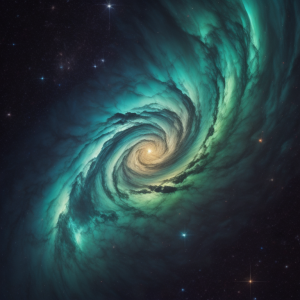
An extraordinary revelation from the James Webb Space Telescope is challenging our fundamental perception of time. Rooted in the Big Bang Theory, scientists have long believed that our universe exploded into existence around 14 billion years ago, continually expanding in the aftermath. However, recent observations by the James Webb Space Telescope are casting doubt on this cornerstone of cosmology, causing us to question our understanding of the universe and the illusion of time.
The curious observations show galaxies behaving contrary to the expectations of the Big Bang hypothesis. The observed galaxies are peculiarly small, surprisingly smooth, seemingly ancient, and astoundingly abundant. Their appearance bears an uncanny resemblance to galaxies closer to us, contradicting the idea of an ever-expanding universe. The lack of observable expansion implies a counterargument to the Big Bang theory, disrupting our perception of time and space.
Additionally, these images contradict the theory's assertion that all matter erupted from the Big Bang. If galaxies initially existed as they appear now, it suggests that the colossal explosion might never have occurred. The determination of the galaxies' ages, based on the color spectrum of their stars, further deepens the mystery. If the most distant galaxies represent the universe at 400-500 million years post-Big Bang, how can they contain stars over a billion years old?
Moreover, the Big Bang Theory anticipates a decrease in galaxies as we peer further into the cosmos, ultimately reaching a point devoid of galaxies. In contrast, the latest images reveal a significantly higher number of galaxies, challenging the theory's feasibility.
This astonishing data dramatically alters our comprehension of time. Currently, our understanding of time is intertwined with the universe's evolution post-Big Bang. However, these revelations prompt us to rethink time in its entirety. There's an intriguing proposition that time might be an illusion, a construct of human memory suggesting that everything that has or will occur is happening at this moment.
We naturally perceive time as linear, flowing forward. Surprisingly, the laws of physics don't necessitate a forward progression of time. Concepts like the Big Crunch Theory suggest that when the universe eventually stops expanding and starts contracting, time could run in reverse. As the universe condenses and heats up, this might instigate a reverse Big Bang.
Theories abound on what follows the Big Crunch. Some conjecture a fresh Big Bang igniting a new universe, while others envision our universe popping into existence elsewhere. There's even speculation of an infinite cycle of universes. This paradoxical concept of time flowing backward or forward has prompted scientists to conclude that time, as we understand it, is merely a human construct. In a block universe model, supported by Einstein's relativity, space and time are intertwined.
In this model, all events—past, present, and future—coexist in the four-dimensional spacetime continuum. The implication? All moments are equally tangible as the present, with past and future persisting somewhere within spacetime. As MIT physicist Max Tegmark eloquently put it, reality could be viewed as a four-dimensional place where nothing happens, everything just is, making time an illusion because nothing truly changes.
While these concepts may be challenging to comprehend, they are undoubtedly intriguing, unveiling the captivating mysteries and magic that make our universe an awe-inspiring marvel.

